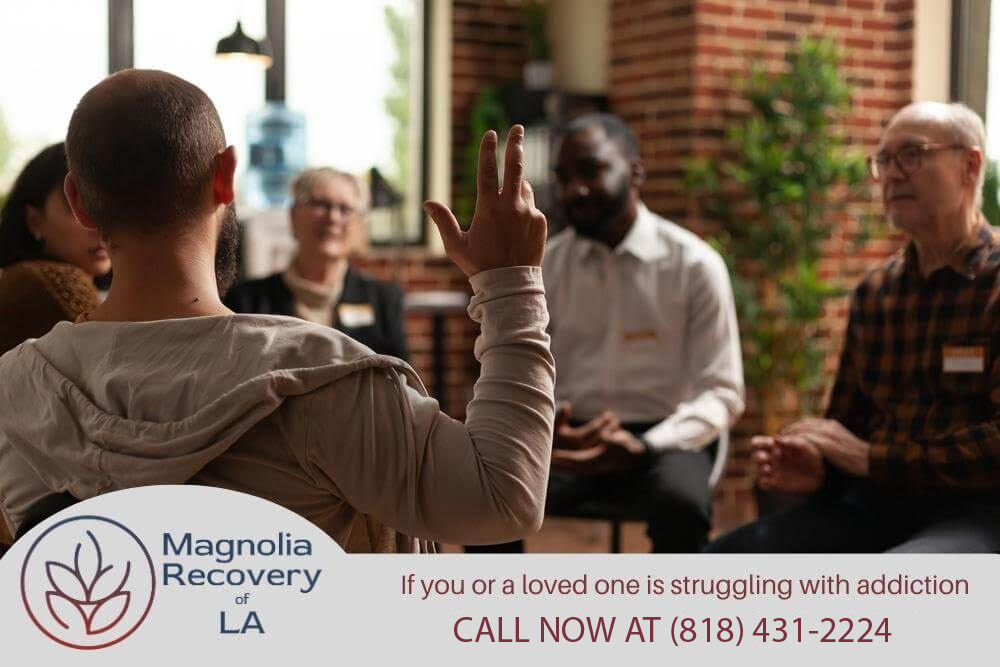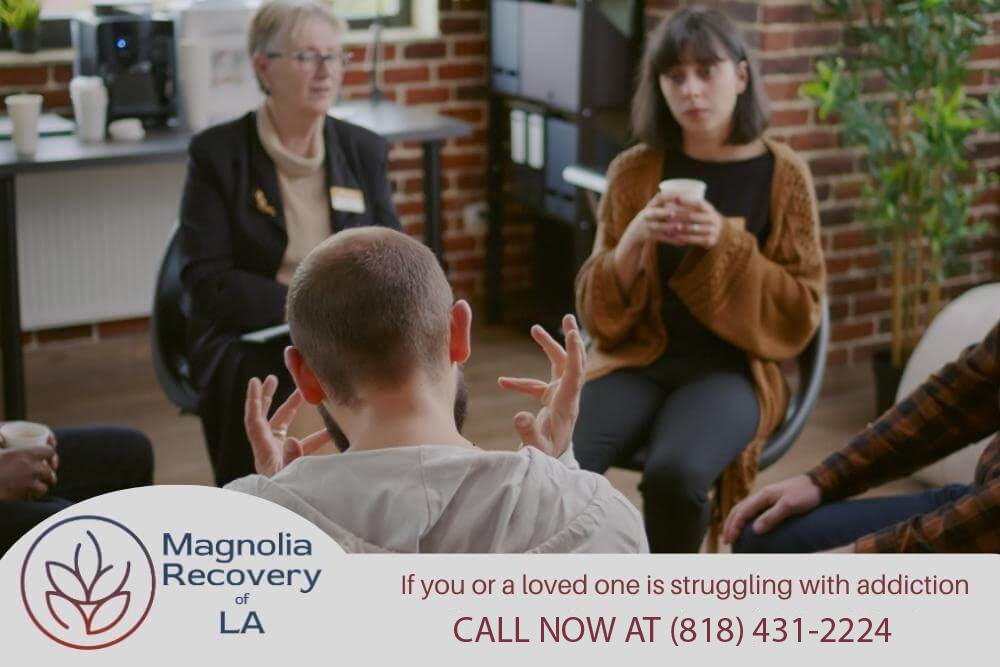Recognizing Alcoholism in Yourself
For most people, it is often easier to recognize concerns with alcoholism with loved ones or others around you. You can see the shift in their behaviors and be a witness to the impacts and consequences that alcohol abuse has caused. While it is easy to recognize signs of alcoholism in others, generally, it can be harder to see concerns with yourself. Your use of alcohol typically begins as a recreational or social activity, however, the more your drinking increases and you begin engaging in heavy or binge drinking behaviors, it can lead down a path of abuse and addiction. If you have had thoughts or concerns about your drinking behaviors or have begun to recognize that your alcohol consumption has become consistent in your day-to-day living or drinking has led to negative consequences or problems, then you may have realized that your alcohol abuse is heading down a path of addiction and dependence.
What is Alcoholism?
Alcoholism is defined as a chronic disorder that is characterized by regular, consistent use of alcohol. As your use of alcohol progresses over some time or increases in the quantity that you are drinking, you become at risk for developing an addiction to alcohol. After you develop a physical and psychological addiction to alcohol, it creates significant challenges for a person to be able to quit her use of alcohol on her own. Oftentimes, people living with an alcohol use disorder will express desires to quit their use of alcohol but find they are unable to do so even experiencing failed attempts at doing so on their own. Additionally, when you are living with alcoholism and are no longer drinking, you will begin to experience intense cravings for alcohol and experiencing the onset of withdrawal symptoms. Alcoholism will range in levels of severity that will be based on your unique history with alcohol abuse resulting in varying impacts and consequences on your physical, emotional, mental, and spiritual health. To effectively treat an alcohol use disorder, it is best treated with a specific addiction therapy approach that will target healing from the impacts of alcoholism within your body, mind, and spirit,
Signs of Alcohol Addiction
Alcohol abuse will have effects that are personal to you. Unlike other disorders, there is no determined set of symptoms and signs of alcohol but rather it has implications that impact a person within a continuum of symptoms and indicators. There are general signs or indicators to be aware of that can bring awareness to your alcohol use and demonstrate the potential risks of alcohol addiction:
- Expressing a desire to quit your use of alcohol but experiencing failed attempts at doing so
- Isolating from others
- Hiding or lying about your alcohol use
- Experiencing difficulties in maintaining prior commitments or a decline in performance at work or school
- Loved ones expressing concerns about your drinking habits
- Having financial concerns due to your alcohol consumption
- Changes in your social circle to one that is centered around drinking alcohol
- The majority of your time is spent thinking about, planning for, and engaging in alcohol consumption
- Losing interest in activities or hobbies that you once enjoyed due to your alcohol abuse
- Inability to control the amount you are drinking results in drinking larger quantities or experiencing blackouts
- Developing a tolerance to alcohol results in you having to drink more alcohol to reach the same desired effects
- Having health concerns or relationship problems due to your drinking but continuing to drink anyways
- Experiencing strong cravings for alcohol when you are not drinking
- Having the onset of withdrawal symptoms once you are no longer drinking
What is Alcohol Detox Like?
Alcohol detox invites you to reside within a treatment facility where you have ongoing supervision and guidance from board-certified nurses and physicians along with evidence-based therapy methods from addiction therapists. Detox can create several challenging emotions and unpleasant withdrawal symptoms that can be difficult to manage on your own. An alcohol detox program will allow you to have the levels of care and specific detox treatments and practices that will ensure that you remain comfortable while maintaining your overall physical and mental health safety.
As you reside within the medical detox, you will begin to end your use of alcohol and start the process of eliminating physical and psychological dependence. As you start to experience withdrawal symptoms, the onsite medical team will monitor your progress and the severity of your withdrawal symptoms to provide you with appropriate treatment methods and approaches that will help to mitigate your presenting withdrawal symptoms and allow you to remain comfortable and safe While you are in alcohol detox, you will be offered a comprehensive treatment plan that will include several medical treatments, therapeutic methods, and holistic therapies that will support you in successfully eliminating the dependence to alcohol. As your body and mind heal from the impacts of alcohol addiction, you will be ready to start the healing process of addressing the underlying causes of your addiction while gaining the tools for long-term recovery.
What To Expect During Detox?
The first step of your detox program is to arrive at the medical detox facility and meet with the admission team and medical professionals who will take the time to get to know you and your specific history with alcohol abuse., You will complete admission paperwork and assessments that will support the medical detox team with the knowledge of the severity of your alcohol abuse, specific health concerns, and any co-occurring disorders that will need to be monitored and treated as you go through alcohol detox. Once the admission process is complete, you will be offered a personalized treatment plan that enables you to safely and successfully overcome the physical and psychological dependence on alcohol.
Once your treatment plan is established, you will be invited to your bedroom within the treatment center where you can take the time to get settled in your new surroundings and meet other patients that are going through an addiction treatment process. Each day that you are in alcohol detox, you will be encouraged to rest and allow your body to heal from the implications of alcohol abuse. When you are not resting, you will be offered holistic therapies that will work to revitalize and restore your body of the necessary nutrients and vitamins you are lacking from your addiction along with a nutritious daily menu that is prepared by onsite chefs. Throughout each day, you will have the continuous support and guidance of medical professionals who will assess your progress through detox and the severity of your withdrawal symptoms. If your withdrawal symptoms are presenting as serious or severe, you will be offered the opportunity to participate in a medication-assisted treatment program where you will be able to take FDA-approved medications that will reduce or eliminate severe symptoms allowing you to stay focused on your overarching goals for sobriety. Your detox program will be completed once you have regained your physical and emotional health functioning and overcome any presenting withdrawal symptoms or cravings.
How Long is Detox?
Each person living with an alcohol addiction will uniquely experience detox depending on the severity of their addictive behaviors. The more severe your alcohol addiction is, it often results in a long time in alcohol detox and experiencing higher levels of withdrawal symptoms. Generally, patients will often feel the onset of withdrawal symptoms within the first 24 hours and the peak of withdrawal symptoms will typically occur within 72 hours and will begin to decrease in severity as you progress through alcohol detox. Most patients will find that they can complete alcohol detox within a period of 7 to 10 days.
Symptoms of Alcohol Detox
Your experiences with alcohol detox will depend on your specific history of alcohol abuse and the severity of your alcohol addiction. Symptoms of alcohol detox will range from mild to severe depending on your history of alcohol abuse and may include some of the following symptoms:
- Headaches
- Sweating
- Depression
- Anxiety
- Insomnia
- Nausea
- Vomiting
- Dehydration
- Fatigue
- Severe mood swings
- Irritability
- Confusion
- Gastrointestinal functioning challenges
- Heart palpitations
- Increased blood pressure
- Elevated heart rate.
- Hyperthermia
- Abnormal breathing rates
- Tremors
- Shaking
- Hallucinations
- Seizures
- Delirium tremens may occur in those with a severe addiction to alcohol
Acute Detox
An acute detox program is designed to support individuals that are living with a severe addiction to alcohol. This method of detox offers the highest levels of care and medical supervision while residing with a medical or treatment facility to undergo alcohol detox. Due to the severity of your alcohol addiction, there is an increased risk of experiencing serious, sometimes life-threatening or dangerous, withdrawal symptoms. Participating in an acute detox program will ensure that you can safely overcome severe withdrawal symptoms with access to medical professionals 24/7. Should any complications arise during your detox, you will be offered immediate medical attention and treatment allowing you to safely and successfully overcome the initial process of your recovery journey.
Why Choose Magnolia Recovery For Alcohol Detox
At Magnolia Recovery, we understand the significant impacts that alcohol addiction can have on your physical, emotional and mental health. Our multidisciplinary team is highly trained and educated in leading addiction treatment methods that are designed to heal from physical dependence, address the underlying issues surrounding your alcohol abuse, and empower you to gain the skills to maintain long-term addiction recovery.
Patients in our alcohol detox program will be offered a comprehensive treatment plan that incorporates traditional detox treatments, evidence-based therapy methods, alternative services and treatments, and holistic therapies. We believe that you have what it takes to heal from your alcohol addiction, all you need is the proper care and methods of healing that will restore your health and wellness from the impacts of addiction and embrace a future in addiction recovery.
Continuum of Care
Your alcohol addiction did not occur overnight. It progressed over some time for reasons that are unique and specific to you. At Magnolia Recovery, we believe the most effective way to address and heal from alcohol addiction is to provide an individualized treatment plan that is centered around your specific needs and self-identified goals for addiction recovery and personal growth. To facilitate long-lasting success in sobriety, you must be offered a full continuum of care within addiction treatment.
The first step in a recovery journey is to heal from the physical dependence on alcohol within a detox program. After you have overcome any withdrawal symptoms and severe cravings, the next phase of your recovery program is to have the opportunity to identify and heal from the underlying issues that contributed to your addictive behaviors within an inpatient or outpatient rehab program. Lastly, once you have healed from your past of addiction and continued to develop the tools for relapse prevention within alcohol rehab, you will be encouraged to participate in an aftercare program that will work to keep you connected to your recovery process along with establishing a network of support in the recovery community.
A Variety of Treatments and Therapies
Each person living with an addiction to alcohol will have her own stories with addiction and personal needs from a treatment program. There is no set format for healing from addiction but rather a treatment program should be catered to meet the individual needs of each patient. Your addiction treatment program will incorporate several evidence-based therapy methods that will support you in healing from the root causes of addiction while also offering skill development for relapse prevention. At Magnolia Recovery, we will create a meaningful treatment plan that will enable you to put your life of substance abuse behind you and achieve your overarching goals for sobriety and wellness.


